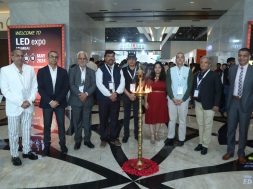Manpower Poaching [July 2012]
“India has got talent and it needs to retain them with the help of oriented systems put in place”, penned Satish Kumar, Director at Elumatec India
The fenestration industry may face serious threat of talent crunch unless something serious is done about it immediately. The IT boom during the 1980s and 90s took advantage of the best talents however the finance and hospitality industries is the most preferred vocations these days. Today people don’t want to work under harsh conditions especially to get a window fixed up. The big companies recruit the final year civil or architecture students but the SMEs are left in the lurch.
Certain companies have people in excess whereas others can’t afford proper talent therefore they have more in-experienced people. New companies are very gullible. A simple draftsman in a big company claims to be a façade designer and gets a huge hike in his package. For around a year, the companies don’t realise the actual potential of this employee and invest heavily in training him. After a year, the same employee quits for greener pastures not only leaving unfinished work but also takes the whole team along with him. Another dangerous trend found is that some of these so called façade designers go on to become façade consultants. Leakage of intellectual property of not only self but also that of the system company is at great risk.
In the Middle-East, a one year ban is imposed on a person once he resigns from a company. He cannot immigrate back into the same country for a year but people hope to other GCC countries.
Industry like the telecom has an un-written rule against poaching of talent even though it is across functions. From distribution to retail or from back office to front office, companies don’t hire from competitors unless the competitor is not based in that region. For example, an employee from a telecom company in Chennai can join any company in Kolkata but not anywhere in the state of Tamil Nadu or anywhere in the region where the company is operating. It is quite unsure whether the norm is followed diligently by all the companies but all big companies understand the feeling of employees being taken away and the HR manager’s network amongst the industry and keep it going.
This situation may occur in the fenestration industry too but not until a technical course in façade engineering or window design from a recognised university where good talent will be available.
There is a huge gap in skills development related to the fenestration industry. The Bath University in UK is the only institute which offers M.sc in façade engineering. A monthly 3-week online course on shop drawings has been started by Bill Cole of Glaziers Centre, USA. However, it is uncertain if these courses match or suits the Indian construction industry. Saint-Gobain under the stewardship of CRN in Chennai has started a glass academy. A customer in Ghaziabad has started a fabrication course to train machinists, fitters and installers. A lot of things are happening in bits and pieces across the country but a more focused approach towards training and retaining the talent is required.
There is ample talent available in the country. Big MNCs like Alabbar and Permasteelisa have their global design offices in India. The need of the hour is to create a pool of engineers, draftsmen, fabricators, machinists, CNC programmers, operators, assemblers and installers. This is a different industry and the best talent can implement the best practices to keep it alive or else there would be a huge loss in the form of contracts lost to companies outside India. This trend is already taking place.
During yet another discussion with a group of customers, few of interesting ideas came up:• Standardising the salaries of draftsmen, designers, and operators determining minimum / maximum wages. So that people won’t change jobs frequently and even if they change their package remains limited within the industry. This would help retain employees to the company with more comfort level rather than jumping for money• To get a NOC from the company a person is leaving regarding the IPR and pending projects• Make the company system oriented than people oriented so that things still move even when people move out.
In conclusion all these points failed because we don’t have standards to follow in this industry. If there is standardisation, then you are not dependent on people to design and draw everything from scratch. It would be easier to recruit people from different industries and train them than to poach internally and kill each other.
5
Cookie Consent
We use cookies to personalize your experience. By continuing to visit this website you agree to our Terms & Conditions, Privacy Policy and Cookie Policy.






